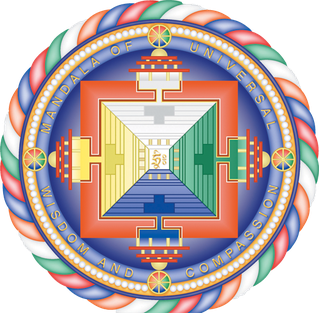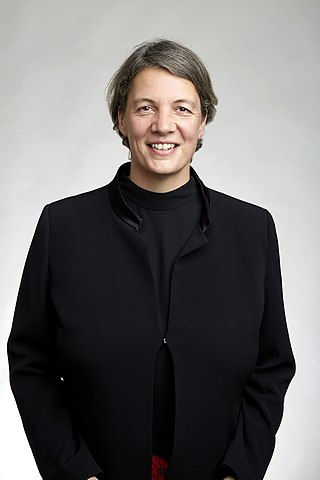Buddhism in the West broadly encompasses the knowledge and practice of Buddhism outside of Asia in the Western world. Occasional intersections between Western civilization and the Buddhist world have been occurring for thousands of years. The first Westerners to become Buddhists were Greeks who settled in Bactria and India during the Hellenistic period. They became influential figures during the reigns of the Indo-Greek kings, whose patronage of Buddhism led to the emergence of Greco-Buddhism and Greco-Buddhist art. There was little contact between the Western and Buddhist cultures during most of the Middle Ages but the early modern rise of global trade and mercantilism, improved navigation technology and the European colonization of Asian Buddhist countries led to increased knowledge of Buddhism among Westerners. This increased contact led to various responses from Buddhists and Westerners throughout the modern era. These include religious proselytism, religious polemics and debates, Buddhist modernism, Western convert Buddhists and the rise of Buddhist studies in Western academia. During the 20th century, there was a growth in Western Buddhism due to various factors such as immigration, globalization, the decline of Christianity and increased interest among Westerners. The various schools of Buddhism are now established in all major Western countries making up a small minority in the United States, Europe, Australia and New Zealand.

The World Fellowship of Buddhists (WFB) is an international Buddhist organization. Initiated by Gunapala Piyasena Malalasekera, it was founded in 1950 in Colombo, Ceylon, by representatives from 27 nations. Although Theravada Buddhists are prominent in the organization,, members of all Buddhist schools are active in the WFB. It has regional centers in more than 30 countries, including India, the United States, Australia, and several nations of Africa and Europe, in addition to traditional Buddhist countries.

The term American Buddhism can be used to describe all Buddhist groups within the United States, including Asian-American Buddhists born into the faith, who comprise the largest percentage of Buddhists in the country.

With nearly 250,000 Buddhists, Brazil is home to the third-largest Buddhist population in the Americas, after the United States and Canada. Buddhism in Brazil consists of practitioners from various Buddhist traditions and schools. A number of Buddhist organisations and groups are also active in Brazil, with nearly 150 temples spread across the states.

Zen at War is a book written by Brian Daizen Victoria, first published in 1997. The second edition appeared in 2006.

The Foundation for the Preservation of the Mahayana Tradition (FPMT) was founded in 1975 by Gelugpa Lamas Thubten Yeshe and Thubten Zopa Rinpoche, who began teaching Tibetan Buddhism to Western students in Nepal. The FPMT has grown to encompass over 138 dharma centers, projects, and services in 34 countries. Lama Yeshe led the organization until his death in 1984, followed by Lama Zopa until his death in 2023. The FPMT is now without a spiritual director; meetings on the organization's structure and future are planned.

Buddhism is a minority religion in Argentina, where, in addition to the majority of the Christian population, the rate of self-professed Buddhists is about 0.5%.
Stanley Jeyaraja Tambiah was a social anthropologist and Esther and Sidney Rabb Professor (Emeritus) of Anthropology at Harvard University. He specialised in studies of Thailand, Sri Lanka, and Tamils, as well as the anthropology of religion and politics.

Women in Buddhism is a topic that can be approached from varied perspectives including those of theology, history, anthropology, and feminism. Topical interests include the theological status of women, the treatment of women in Buddhist societies at home and in public, the history of women in Buddhism, and a comparison of the experiences of women across different forms of Buddhism. As in other religions, the experiences of Buddhist women have varied considerably.
Joyce Lebra, also known as Joyce Chapman Lebra, was an American historian of Japan and India.
Buddhist studies, also known as Buddhology, is the academic study of Buddhism. The term Buddhology was coined in the early 20th century by the Unitarian minister Joseph Estlin Carpenter to mean the "study of Buddhahood, the nature of the Buddha, and doctrines of a Buddha", but the terms Buddhology and Buddhist studies are generally synonymous in the contemporary context. According to William M. Johnston, in some specific contexts, Buddhology may be viewed as a subset of Buddhist studies, with a focus on Buddhist hermeneutics, exegesis, ontology and Buddha's attributes. Scholars of Buddhist studies focus on the history, culture, archaeology, arts, philology, anthropology, sociology, theology, philosophy, practices, interreligious comparative studies and other subjects related to Buddhism.

Genevieve Bell is the Vice-Chancellor of the Australian National University and an Australian cultural anthropologist. She is best known for her work at the intersection of cultural practice research and technological development, and for being an industry pioneer of the user experience field. Bell was the inaugural director of the Autonomy, Agency and Assurance Innovation Institute (3Ai), which was co-founded by the Australian National University (ANU) and CSIRO’s Data61, and a Distinguished Professor of the ANU College of Engineering, Computing and Cybernetics. From 2021 to December 2023, she was the inaugural Director of the new ANU School of Cybernetics. She also holds the university's Florence Violet McKenzie Chair, and is the first SRI International Engelbart Distinguished Fellow. Bell is also a Senior Fellow and Vice President at Intel. She is widely published, and holds 13 patents.
Helen Hardacre is an American Japanologist. She is the Reischauer Institute Professor of Japanese Religions and Society at the Department of East Asian Languages and Civilization, Harvard University.
Caroline Humphrey, Baroness Rees of Ludlow, is a British anthropologist and academic.

Michelle Yvonne Simmons is an Australian quantum physicist, recognised for her foundational contributions to the field of atomic electronics.
Kenneth Lewis Kraft was a professor of Buddhist studies and Japanese religions (emeritus) at Lehigh University in Bethlehem, Pennsylvania.
Bernard Faure is a Franco-American author and scholar of Asian religions, who focuses on Chan/Zen and Japanese esoteric Buddhism. His work draws on cultural theory, anthropology, and gender studies. He is currently a Kao Professor of Japanese Religion at Columbia University and an Emeritus Professor of Religious Studies at Stanford University. He also previously taught at Cornell University, and has been a visiting a professor at the University of Tokyo, the University of Sydney, and the École Pratique des Hautes Études in Paris. He co-founded the Center for Buddhist Studies at Stanford University and the ARC: Asian Religions and Cultures Series within Stanford University Press. He is also the founder and co-director of the Columbia Center for Buddhism and East Asian Religions (C-BEAR). His work has been translated into several Asian and European languages.
Lynette Wendy Russell, is an Australian historian, known for her work on the history of Indigenous Australians; in particular, anthropological history ; archaeology; gender and race, Indigenous oral history, and museum studies.
Alphia Possamai-Inesedy is an Australian sociologist who is Director of the Sydney City Campus at the University of Western Sydney. She is the Vice President of the Australian Sociological Association.
Paula Kane Robinson Arai is an American professor and Buddhist studies scholar, specializing in the academic study of women and Buddhism, specifically Jōdo Shinshū Buddhism and Japanese Sōtō Zen women. She has also been an active public speaker and led workshops on healing rituals.









